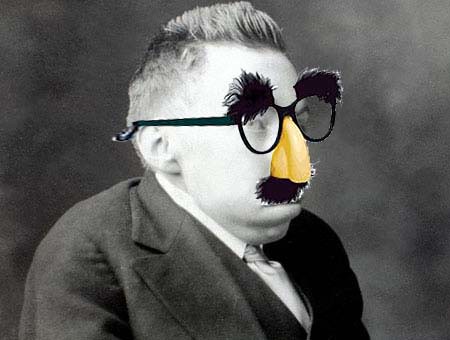You'd think a guy that nice would make for a boring biographical subject, but Willie's been through a lot. Whereas most popular musicians are on the downside creatively when they pass thirty, Nelson achieved hardly any success before forty. The first few decades were filled with struggles to pay rent, struggles to hold his family together, struggles to sell songs, struggles to stay on the road. All of which makes the first half of Joe Nick Patoski's book a pretty strong read.
As for the second half? Depends on how much time you want to spend reading about a millionaire who just hangs out on his own private golf courses getting stoned all day. Nelson, who became renowned as a songwriter long before attaining any sort of recognition as a performer, has hardly written any songs in the past thirty years or so. Without any hardship, he says, he has little to write about.
Since signing with Columbia in 1975 and releasing the career-making Red-Headed Stranger album, he's recorded mostly other people's songs and reworked his own older material. Which is fine, because he's a terrific singer and brilliant performer with impeccable taste in material. He's also nothing if not prolific; in an appendix to the book, Patoski narrows down all his favourite Willie albums to a list of only the forty most essential.
It's also worth noting that, even in his heyday, Nelson did not write some of his best-known songs, including "Whiskey River", "If You've Got the Money, I've Got the Time" and "Poncho and Lefty". On the other hand, some of his best-known compositions were made famous by other performers, like "Crazy" and "Hello Walls". So he writes some, he sings some, they overlap here and there, and it's all part of the Willie canon.
The book's most irritating flaws are all a result of what feels like sloppy editing. There are factual errors minor (referring to rapper Ludacris as a "New York hip-hopper") and major (casually mentioning that 1985's Live Aid concerts benefitted AIDS research), none of which is particularly ruinous on its own, but which add up over the course of the book. Characters are often introduced, then introduced again, as if for the first time, just a few pages later. More frustrating still are inexplicable oversights that actually hinder the reader's understanding of the story. For example, Patoski spends a full page detailing how Nelson commissioned a song from songwriter Beth Neilsen Chapman, recorded it as a duet with her and scored his biggest hit in years, all while neglecting to mention the name of the song.
There also appear to be pieces of the story missing. The photo insert in the middle includes a picture of Willie and three others posing on what appears to be an airplane boarding staircase. According to the caption, it's Nelson's band the Offenders headed for England in 1968. But within the text of the book, the name the Offenders is mentioned only once in a single paragraph which notes that the name was briefly used by the band but didn't last; it doesn't even make the index. And there's nothing about Nelson travelling overseas in 1968 for what would have been, if I remember correctly (and, granted, I might not), his first ever European shows.
Having never written or edited a 500-page biography myself, I reserve judgment and don't wish to assign blame. But these flaws have the cumulative effect of distracting the reader from what Patoski does so well, which is to paint vivid portraits of Nelson and the major characters in his life. After finishing the book, I felt as though I had known for years not only Willie, but also sister Bobbie, drummer and best friend Paul English (as in "Me and...", for those of you who know the song), third wife Connie, and daughters Lana and Susie as well. These are what make the book worth reading, at least for the first 300 pages or so. If you lose interest after that, don't worry, you won't miss much.
His notorious run-in with the IRS is the last major incident of Nelson's career. Patoski covers this in a well-researched, journalistic style, then just sort of rambles. He spends the last seventy pages or so just describing Nelson's activities of the past ten years with little or no apparent organising principle; it's certainly far from chronological. He closes on a scene of Nelson re-opening a church in his hometown he has just purchased to save from bankruptcy. Nelson spends time with the adoring crowd then moves on to the next show. I guess it's hard to come up with an ending when you write a biography of a guy that's still alive.

1 comment:
This is a really good review, criticisms and all, and I can say that because I wrote the book.
Do know that for all the rambling, I had to cut 300 pages out of the manuscript. Trying to squeeze this man's life into 500 pages required a lot of shortcuts and skimming and yes, reaching The End was no easy feat, since he's still on the move.
Thanks for reviewing it.
Post a Comment